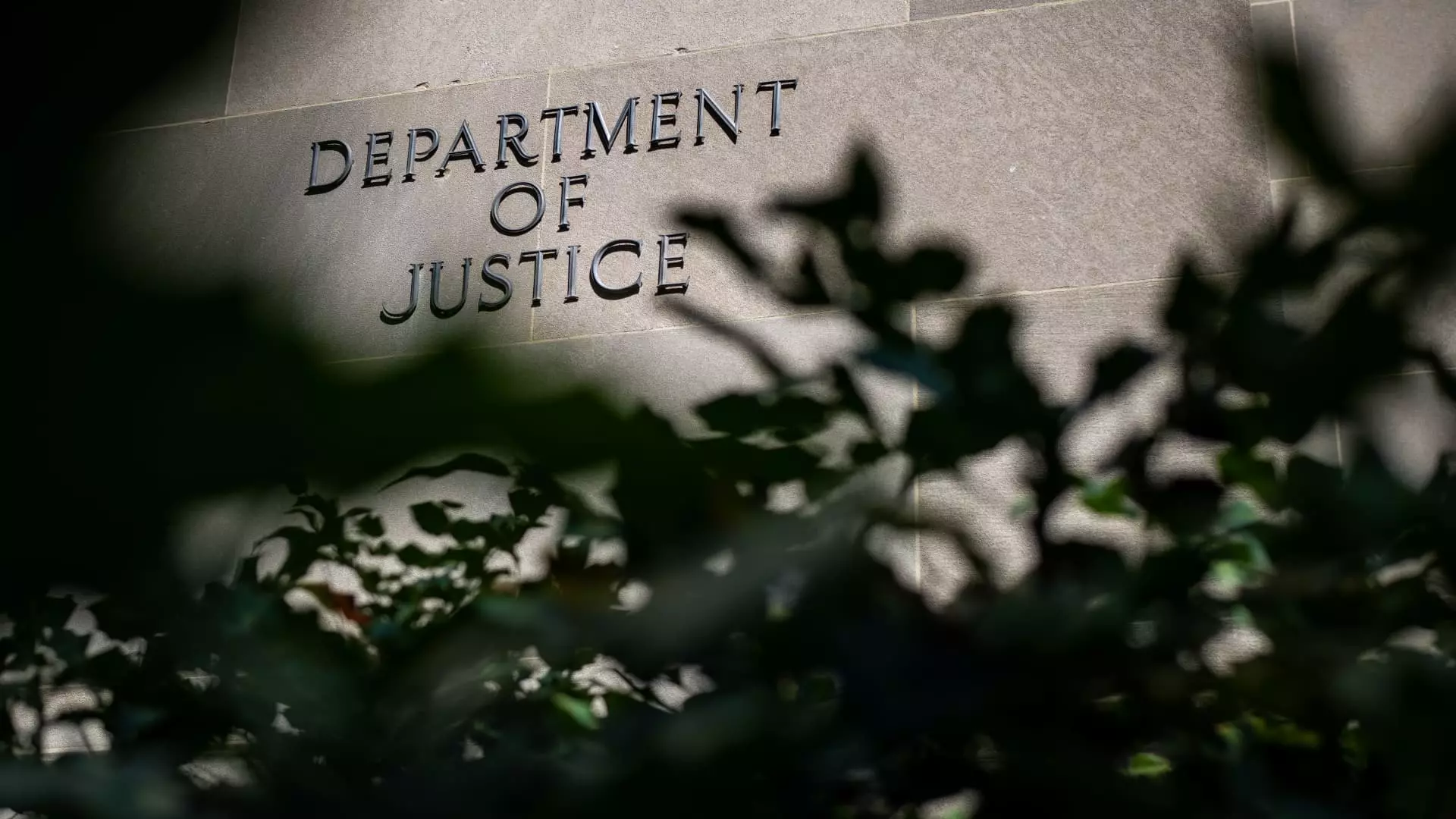In a startling move, the U.S. Justice Department has dismantled its National Cryptocurrency Enforcement Team, illustrating a reckless deviation in the federal government’s approach toward cryptocurrency-related crimes. This decision, announced by Deputy Attorney General Todd Blanche, advocates for a decentralized strategy that places the onus on individual U.S. attorney’s offices to spearhead cases relating to digital assets. By pivoting toward handling primarily terrorism-related crimes, the DOJ has unveiled a troubling focus on an area that is already rife with difficulties in enforcement and interpretation.
This change not only underestimates the complexities inherent in cryptocurrency but also signals a dangerous laissez-faire attitude towards what has rapidly become a chaotic financial sector. With federal attention now fondly tilted towards “victimization of digital asset investors,” we cannot ignore how this could potentially enable a swell of fraudulent schemes, leaving the most vulnerable investors exposed. The implications are far-reaching, ultimately transforming our regulatory landscape into an almost Wild West, where malicious actors may flourish without adequate oversight.
Political Motives or Genuine Reform?
This Regulatory rollback closely follows the campaign trail of Donald Trump, who has surprisingly made crypto-friendly policies a hallmark of his ambitions for 2024. Coincidence or orchestrated strategy? The disbandment of the enforcement team seems curiously timed with Trump’s political aspirations and his family’s substantial investments in cryptocurrency. Allegations are mounting that these changes serve to shield his ventures rather than represent a genuine commitment to rectifying the myriad issues facing digital assets today.
The former president’s initiatives, including a new digital bank and various crypto projects, cast a long shadow over the integrity of these policy decisions. Indeed, the DOJ now explicitly declines to pursue actions against crypto exchanges or unregistered securities offerings unless a defendant knowingly violates laws. Such a lenient stance raises a flag of concern; could this open the floodgates for scams and misguided investments? Why should we trust that market players will maintain ethical standards in the absence of accountability?
Impact on Investor Protection
The reduction in regulatory scrutiny undeniably raises alarm bells for investors who may unwittingly find themselves entangled in schemes that take advantage of these newly established loopholes. Instead of a structured program to safeguard investors, the current administration is moving toward a state where enforcement against activities deemed outside the purview of “serious crimes” is either lax or nonexistent. This shift undermines faith in a system that is supposed to protect individuals from fraud, decentralized or not.
For instance, without the prior focus on unlicensed money transmission or fraud-focused initiatives, how can investors expect to feel secure in their investments? Case in point includes the previous high-profile cases, like that of Changpeng Zhao and Binance, which demonstrated that serious enforcement mechanisms were in place when crypto was closely policed. Removing these layers of protection appears profoundly short-sighted and counterproductive.
A Fraying Legal Fabric
As we delve deeper into the intricacies of the Justice Department’s internal memo, criticisms of past enforcement strategies under the Biden administration raise questions. It becomes apparent that this administration views criminal enforcement merely as a regulatory mechanism that has overstretched itself. Yet the proposed remedy—a relaxed posture towards financial regulation—demonstrates little understanding of the profound risks associated with cryptocurrency.
Disbanding the Market Integrity and Major Frauds Unit not only signals a retreat from active enforcement but also leaves a vacuum in legal standards that could be catastrophic. Should we really be delegating the monitor of digital finance to organizations outside the criminal justice system? This hands-off approach can only exacerbate the already burgeoning issues of cybercrime and investor fraud, resulting in a regulatory recklessness that threatens consumer confidence.
The Ripple Effect on the Market
Undoubtedly, the ramifications of this deregulatory wave extend beyond just investor protection and risk management. The digital asset market has already seen a dramatic downturn recently, evaporating $1.2 trillion from its overall valuation. The current regime’s ethos favors deregulation, but as cryptocurrency values plummet, one must question the sustainability of such a strategy. With the absence of a standardized enforcement approach, will the market stabilize, or is it doomed to further free-fall?
The unqualified encouragement of unfettered blockchain access, devoid of scrutiny, might very well contribute to both market volatility and a breeding ground for criminal activity. Further exacerbating the challenges, the lack of investor protection is likely only to compound the further deterioration of market efficacy and participant awareness.
Through these layers of critique, we grasp the broader picture: a liberal center perspective exposes the urgent need for balanced regulation over chaotic deregulation. Only then can we hope to regain the integrity essential to fostering a secure and innovative digital economy.


Leave a Reply